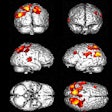Dear Molecular Imaging Insider,
For decades, PET has been the modality of choice to investigate suspected cases of cancer. More recently, multiparametric MRI (mpMRI) has become more involved in evaluating suspected cases of higher-risk primary prostate cancer, given its ability for improved detection. The problem with mpMRI, however, is that it can result in a greater number of false positives and typically achieves only moderate agreement between different radiologists interpreting the scans.
To help correct those issues, researchers from the University of Michigan combined F-18 choline PET with mpMRI and found that together the two modalities can significantly improve the detection and assessment of primary prostate cancer. The details are available in this edition's Insider Exclusive.
In other news, flortaucipir-PET and blood tests have correlated two key biomarkers of chronic traumatic encephalopathy (CTE) in military personnel who experienced traumatic brain injuries (TBI) from blasts. Researchers observed elevated levels of tau tangles and increased evidence of a blood chemical associated with TBI, both of which could be indications of current or future acute brain degeneration and possible progression to CTE.
Men and women who had been widowed and who have elevated beta-amyloid levels on PET scans are more likely to have accelerated cognitive decline associated with Alzheimer's disease. The results of a study from Brigham and Women's Hospital in Boston helped researchers highlight the biological processes behind a previously recognized risk factor for Alzheimer's disease.
How would you react if your PET scan revealed elevated levels of an Alzheimer's disease biomarker in your brain? If you would change your daily health habits and reset your future goals, you are not alone. The findings come from the Study of Knowledge and Reactions to Amyloid Testing, which polled 80 cognitively normal older adults, the majority of whom viewed the news as "more serious" than other test results.
Last but not least, several indicators on pretreatment FDG-PET/CT scans can help predict overall survival in patients with locally advanced cervical cancer and para-aortic lymph node involvement. These markers could help clinicians steer patients toward more aggressive treatment.
Be sure to stay in touch with the Molecular Imaging Community on a daily basis for the latest in new research and news from around the world.




















